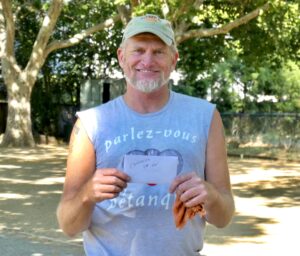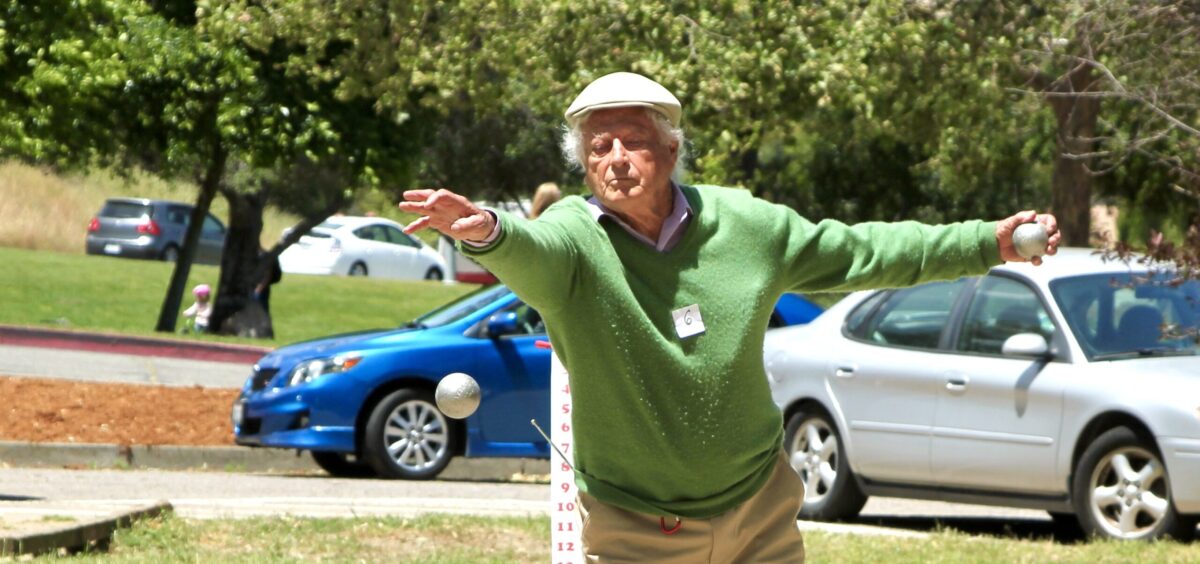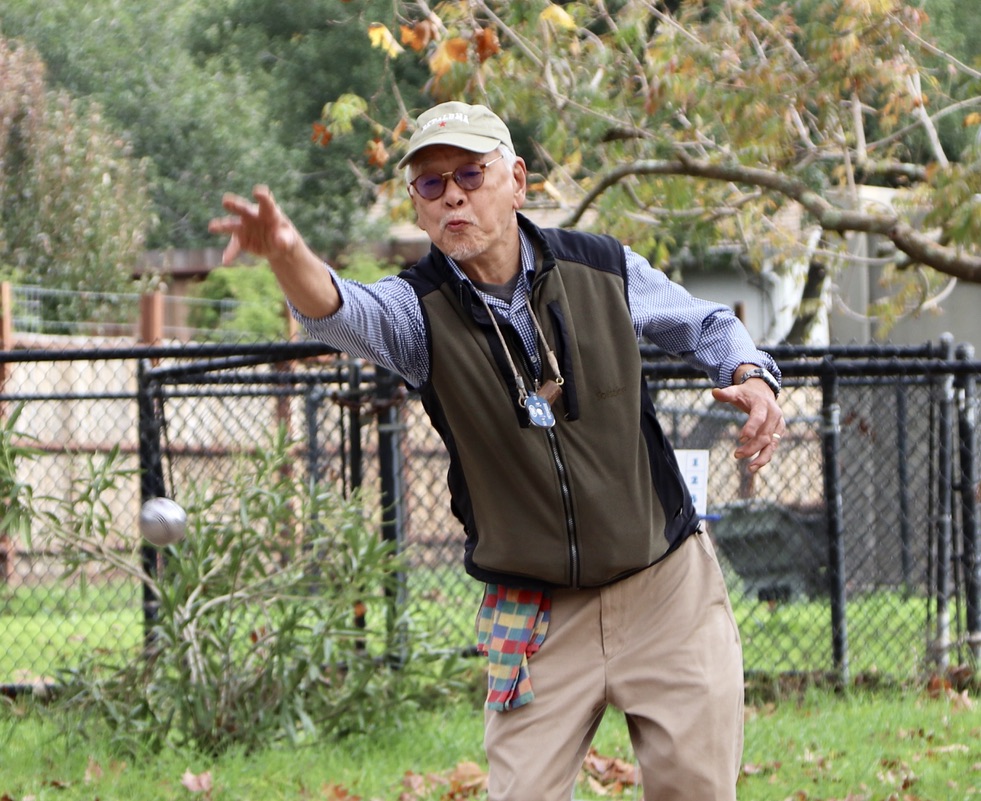Yesterday’s “One on One” tournament in Marin County took place under mild weather conditions and featured 32 participants. A total of 3 timed games were played in the morning, with 2 in the afternoon.
Memorable Matches

Very many good games were played simultaneously, and it was impossible to cover them all in their entirety. To be fair, I just caught a few minutes of a particular game before moving to the next one.
A particularly outstanding game unfolded in the afternoon, between Giuseppe Gadaleta and Hamid El Qarei, originally from Morocco. Hamid, a relatively unknown and unassuming player from Sacramento, surprised everybody with his skills and tenacity. He turned out to be a surprisingly good shooter and a dogged opponent.
This match turned into a nail-biting contest, with Giuseppe narrowly securing victory with a score of 13 to 12.
The Finals
In the finals, Giuseppe faced Kevin in a match marked by widely contrasting playing styles. Giuseppe displayed a vibrant and well-rounded technique, while Kevin impressed with his steady mastery of the “plombé” technique. He scored great points which might have unsettled his opponent.
The surprising outcome 13/6 in favor of Kevin highlighted the diversity and talent present at the event.
Concours:
1st place: Kevin Evoy $110.00
2nd place: Giuseppe Gadaleta $97.00
3rd place: Hans Kurz $76.00
Consolante:
1st place: Ron Rohlfes $57.00
2nd place: Patrick Vaslet ???
Alain
Pictures at the usual spot

 The longer you work on a project, the more precious it becomes—and the harder it is to let go.
The longer you work on a project, the more precious it becomes—and the harder it is to let go.